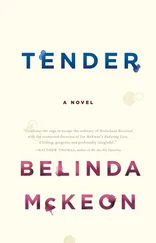‘Really?’ Joanne said uncertainly.
‘Oh, yes,’ said Tom, his voice beginning to rise now. Mark’s heart sank. It meant trouble when his father’s voice began to swell like that.
‘Very worried about the babby,’ Tom went on. ‘She said, sure that babby couldn’t be due for another month or six weeks yet, could it now, Tom? She said it could only be seven or eight months since she heard the news. Oh, she was terrible worried. Terrible concerned at it being premature.’
Nobody spoke. Mossy and Joanne were looking at Tom, waiting for him to go on, waiting for him to make clear whatever it was he was trying to say. Mark and Maura did not look at him. They looked at each other. Maura knew what his father was saying, Mark could see — that terrible strain on her face — and he was coming to understand it too.
‘Tom, stop that,’ his mother said. ‘Sure Breda Keogh doesn’t even know Joanne.’
‘Oh, Breda knows everybody,’ Tom said, in a sing-song voice.
‘Breda Keogh’s a poisonous bitch,’ Mark said, and he walked over and took the baby from Mossy. He moved in close to his father at the window, holding the baby up to him so that he could not ignore her. The baby began to whimper.
‘Mark,’ Joanne said, from the bed, but he only pushed the child in closer and closer to his father’s face.
‘Look at her, Dad,’ he said, and his father’s gaze flickered and flitted before coming to settle on the top of the baby’s head.
‘Isn’t she a lovely little one?’ his mother said, with great deliberateness. ‘Tom,’ she said, when Mark’s father did not reply, and then, finally, his father nodded.
‘Good luck to the both of yiz,’ he said, with great solemnity, looking only to Mark and the child.
‘Thanks, Tom,’ said Joanne, from the bed.
‘She’s a lovely little one,’ Maura said again. ‘Give her to him, Mark, will you not?’
‘Mark,’ said Joanne. ‘That window. I don’t want her near to that draught.’
*
She cried every night for almost every last minute of the night, and she cried in the early morning, and for a good part of the day. In theory, that was no surprise. That much they had been warned about. But the exhaustion, and the drudgery, and the fear of getting something horribly wrong: nobody had described any of that. Nobody had described the way everything would shrink to this pinprick. It all became about getting this unknowable being, this powerless and yet infinitely powerful little reptile, through the day and through the night when day and night scarcely seemed divided. The hours seemed to stop passing, becoming just a wall of insomnia and of the same actions repeated over and over until all awareness of a world outside fell away, came to seem like a rumour they both remembered hearing, but which they never had the time, never a moment, to sit down and straighten out. Of course they went into this world, of course they had to; once or twice a day one or the other of them went down the street and around the corner to the Centra, which sold milk and bread and nappies and formula at extortionate prices, but it was a five-minute walk, and it passed in a daze of thought and confusion and absorption in whatever scene they had just left behind: what hour of screaming, what fragment of silence, what rash, what shiver, what colour of puke, and what the next hour would bring, what needed to be done, what needed to be guarded against.
She was doing wonderfully. Those were the nurse’s words. The nurse came once a week, and when she was in the house the baby somehow seemed to know it, seemed to put on her best show: her quiet gaze, her gorgeous yawn, her delicate, almost fey little squirm in your arms. The nurse said she was strong, she was healthy, she was growing at exactly the right rate, that the formula seemed to be suiting her, although it would be even better, of course, if the milk could be coming from Mom.
‘I have to go back to work in a month,’ said Joanne, once again. She had told the nurse this already; she had told her several times. She had told her mother, too, and Mark’s mother, and the nurses in Holles Street. Everybody seemed to be very concerned about the benefits of breastfeeding. Everybody seemed to think that surely something could be done about the terrible shortness of Joanne’s maternity leave. Everybody had a solution, but nobody, as far as Joanne could see, had breasts throbbing and leaking with milk. And nobody had case files building up on a desk on Ormond Quay. She knew that the work she had to do was mounting, that Eoin and Imelda had not hired anyone to replace her during her leave; for the sake of less than two months, said Imelda, it would not have been worth their while.
She had worked in the office until the weekend before the birth. The narrow stairs with the rickety steps made sure that she started and finished each long, grinding day with the awareness of how responsible she was for the life curled up inside her beneath a layer of skin. Mark’s mother had lost a baby at the bottom of the staircase in Dorvaragh, she had told Joanne. She would not wish the pain or the shock or the guilt of it on anyone, she had said. This had been while Joanne was growing bigger, growing slower, around the eight-month mark. Mark’s mother had been full of the kind of advice that had made Joanne wary of even stepping outside the door.
Now it was about Mark’s mother and Joanne’s mother that the nurse was asking, about how far away they lived, about the great help they must be, about what a godsend they would prove to be in the months ahead. As she spoke, the nurse lifted one and then the other of the baby’s legs, pulling each one gently, as if to stretch it out. What was that for? Was that meant to be some method for encouraging limbs to grow? Much of what the nurse did on her visits seemed mysterious. There was a lot of pressing and listening, tapping and weighing, and there was very little of the nurse telling them the things they had to do. They never felt, after one of her visits, that they were any closer to knowing what the trick to all of this might be.
‘You’ll need your mom on the other end of the phone when this mom goes back to work,’ the nurse said to Mark.
‘Yeah,’ said Mark, in a tone as close as he could manage to the sheepishness that, he felt sure, the nurse wanted to hear. But he didn’t want to sound sheepish. He resented feeling as though he had to. And if she said ‘mom’ in that mid-Atlantic twang one more time, he would snatch Aoife right out of her arms.
‘Oh, it’ll be a right land for your daddy,’ the nurse said to Aoife, dipping her low so that her gaze roamed around the room. ‘But he’ll get used to it, won’t he? He’ll just have to, won’t he, pet?’
Beside him, Joanne sighed. He looked at her; she looked away. She was sighing not out of irritation at what the nurse was saying about him, he knew, but out of misery at what she was reminding them of: the fact that, very shortly, Joanne would be going back to work. This was not something Joanne wanted to talk about. Every time Mark tried to bring up the subject, she started to cry. She seemed unable to bear the idea of returning to the office, and of being away from Aoife, and of starting up again with those twelve-hour days of slaving away for Imelda and Eoin, and of coming back in the evenings at a time when the baby would long since have gone down. He could understand it. The truth was, he would have hated to leave the baby too, even for a day. But how he was going to manage by himself was something he could barely imagine. He could give Joanne a run for her money when it came to anxiety and paranoia. The things that could go wrong. The damage you could accidentally do. The things that it could take you ages to spot, and by then it would be too late. And the madness. The slow, creeping madness. He could feel it already quite firmly beginning to take hold. It was sleep deprivation, he knew that. But it was also the lack of what used to be reality: adult conversation, meaningless diversion, normal everyday crap. He missed it. No, that was not true; he did not have time to miss it. He could barely even remember it. But he was going demented without it. He was a worker at a conveyor-belt. He was a horse with a thousand acres to plough. He was a rat in a lab.
Читать дальше












